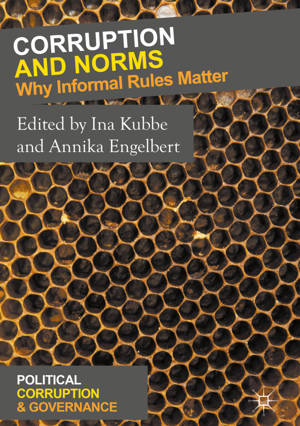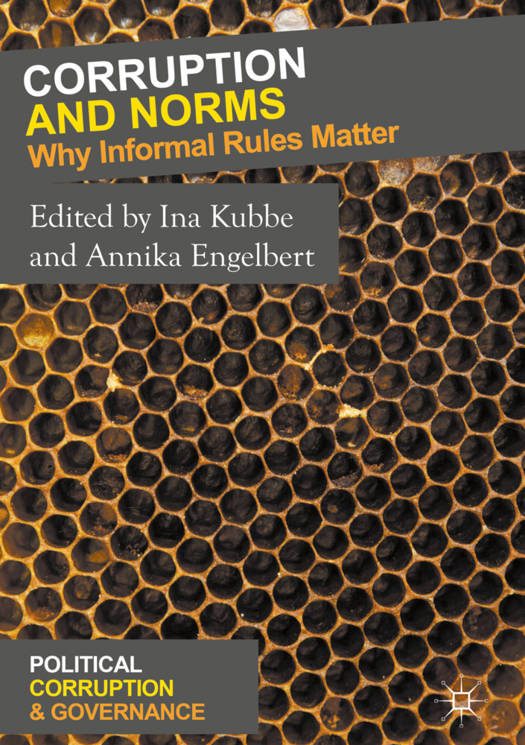
- Retrait gratuit dans votre magasin Club
- 7.000.000 titres dans notre catalogue
- Payer en toute sécurité
- Toujours un magasin près de chez vous
- Retrait gratuit dans votre magasin Club
- 7.000.0000 titres dans notre catalogue
- Payer en toute sécurité
- Toujours un magasin près de chez vous
Corruption and Norms
Why Informal Rules Matter
Description
This book focuses on the role of norms in the description, explanation, prediction and combat of corruption. It conceives corruption as a ubiquitous problem, constructed by specific traditions, values, norms and institutions. The chapters concentrate on the relationship between corruption and social as well as legal norms, providing comparative perspectives from different academic disciplines, theoretical and methodological backgrounds, and various country-studies. Due to the nature of social norms that are embedded in personal, local, and organizational contexts, the contributions in the volume focus in particular on the individual and institutional level of analysis (micro and meso-mechanisms). The book will be of interest to students and scholars across the fields of political science, public administration, socio-legal studies and psychology.
Spécifications
Parties prenantes
- Editeur:
Contenu
- Nombre de pages :
- 370
- Langue:
- Anglais
- Collection :
Caractéristiques
- EAN:
- 9783319662534
- Date de parution :
- 30-01-18
- Format:
- Livre relié
- Format numérique:
- Genaaid
- Dimensions :
- 148 mm x 210 mm
- Poids :
- 607 g

Les avis
Nous publions uniquement les avis qui respectent les conditions requises. Consultez nos conditions pour les avis.





